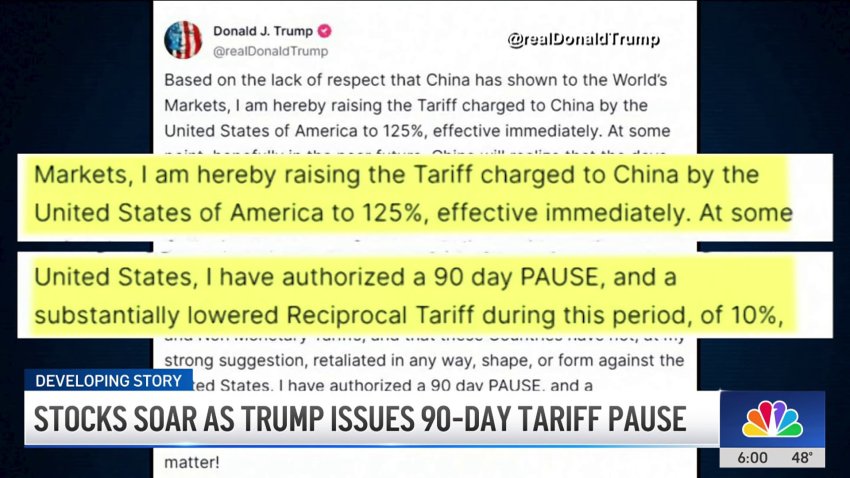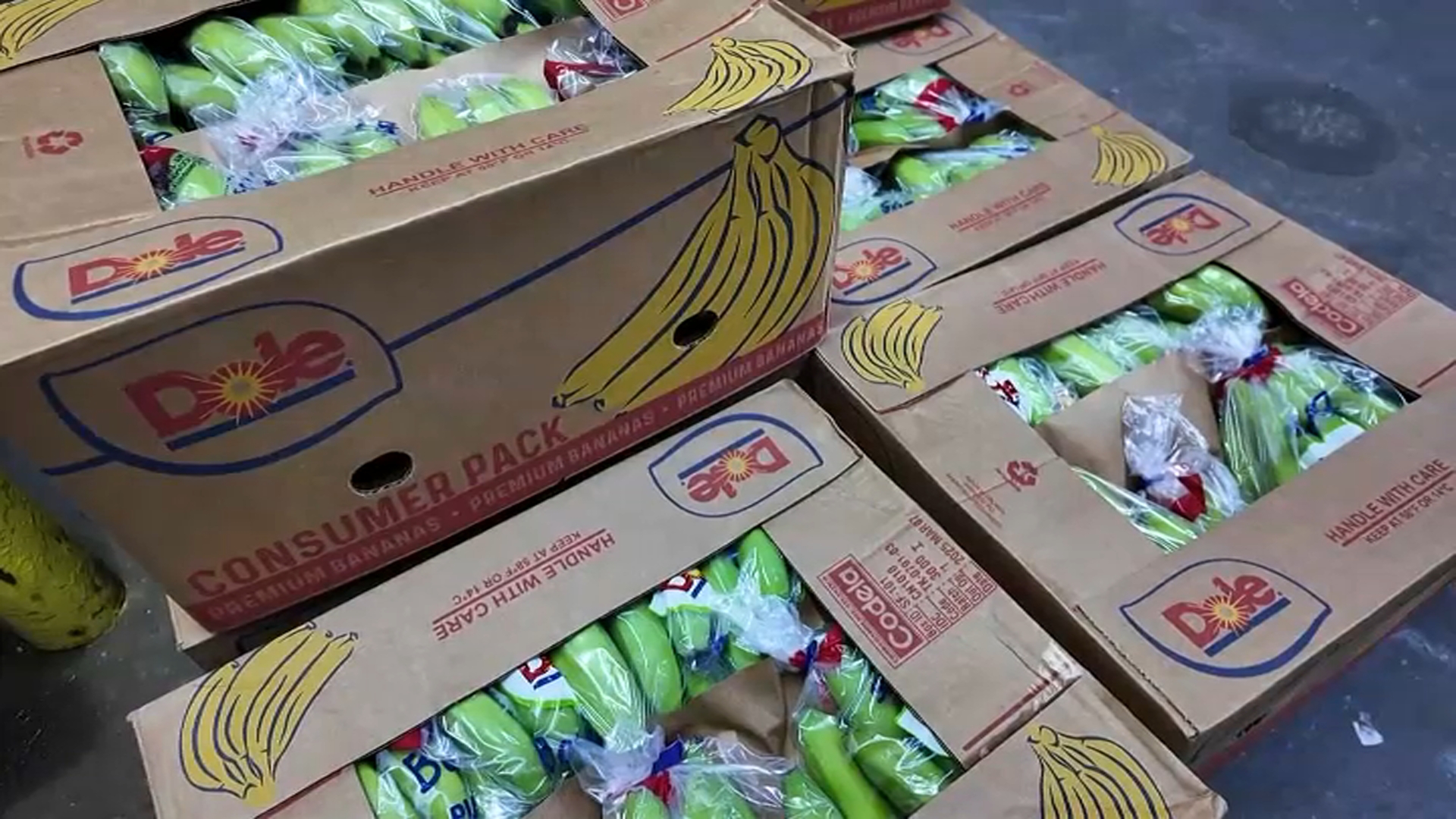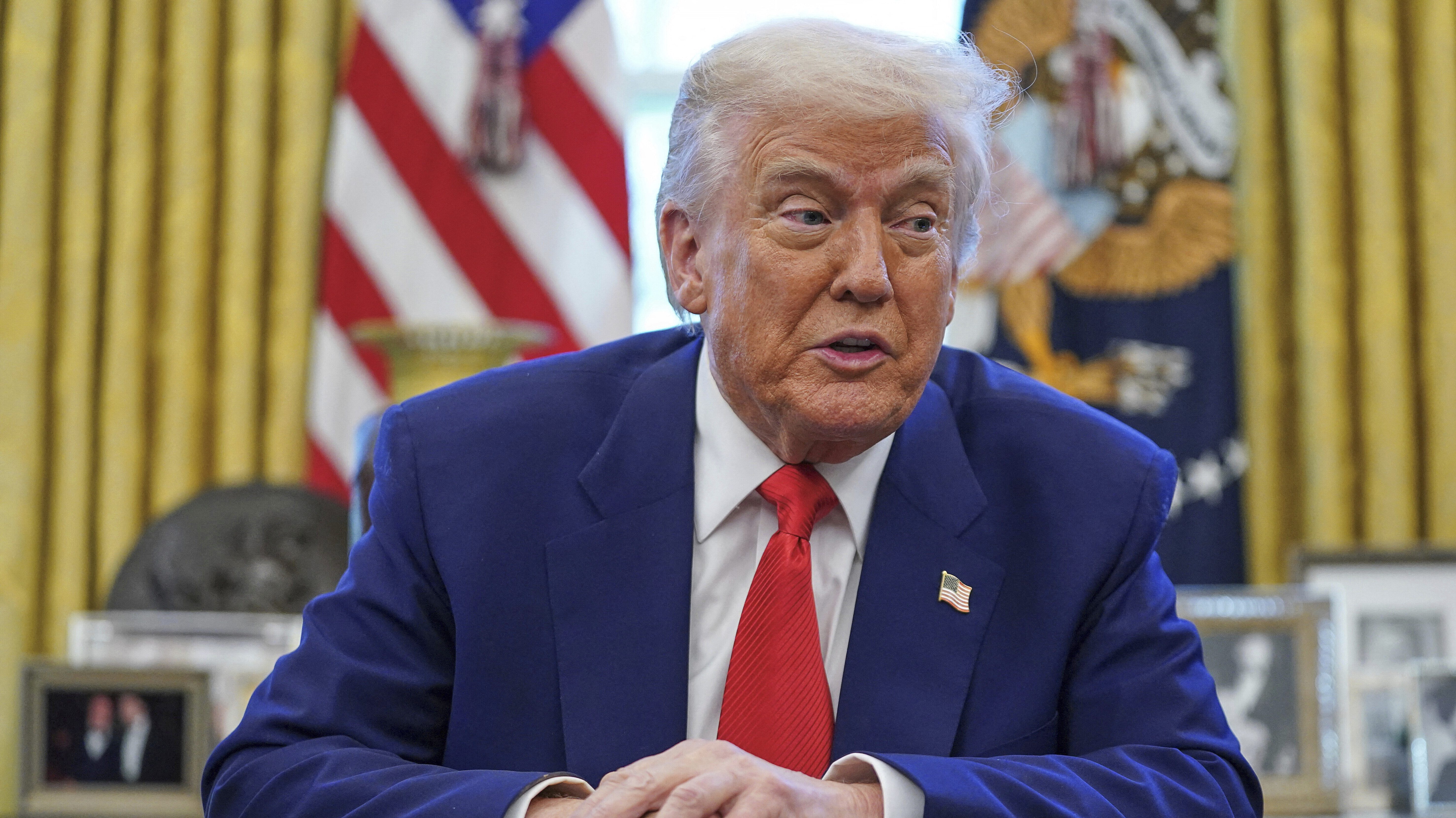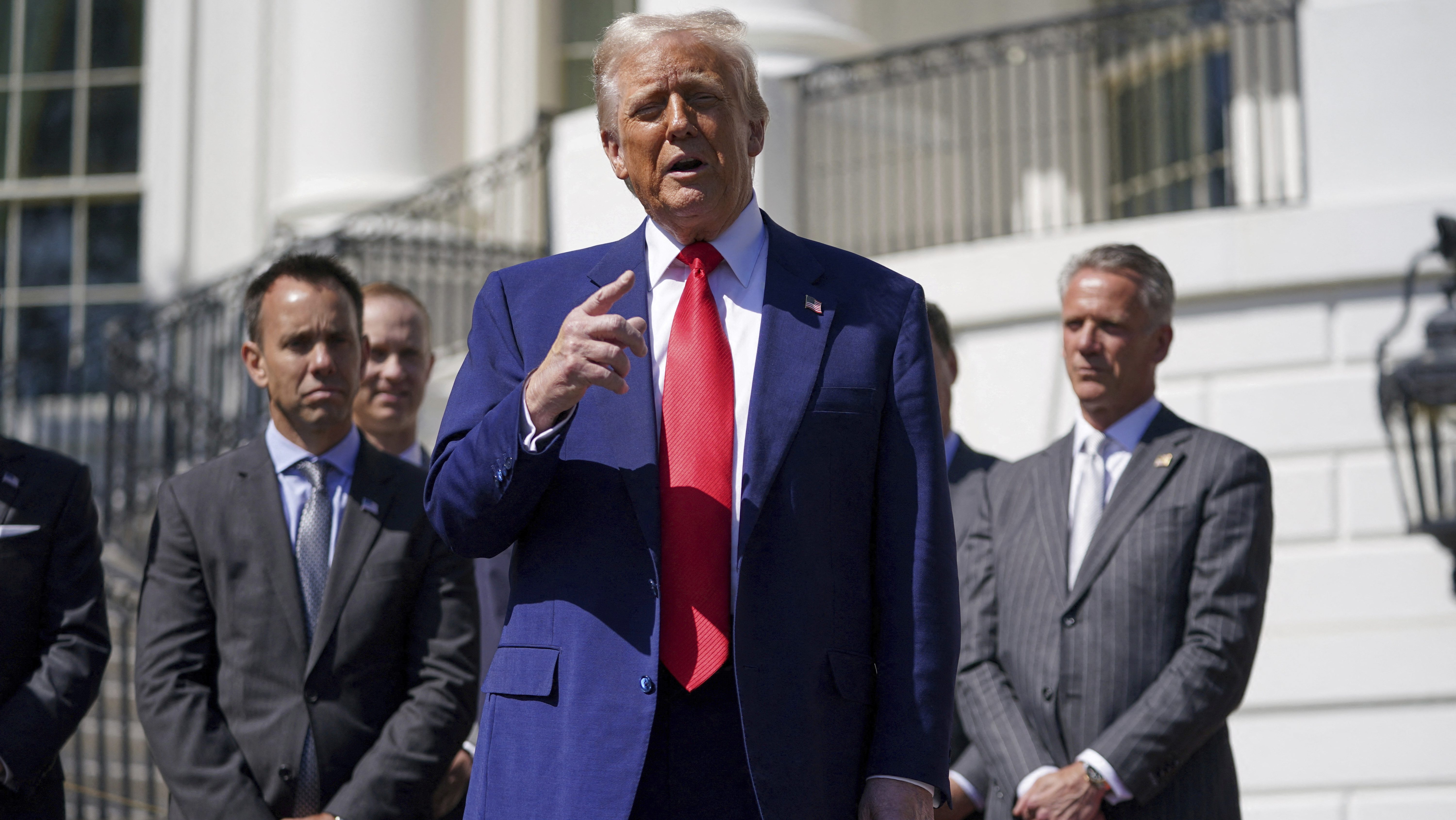After days of turmoil, President Trump abruptly paused reciprocal tariffs on most nations for 90 days, but hiked tariffs on Chinese imports to 125%. Separate tariffs on cars, steel and aluminum remain in place, while planned tariffs on prescription drugs are also on the horizon. NBC New York’s Charles Watson reports.
Business owners and consumers alike are breathing a sigh of relief following news that President Donald Trump paused a wide range of tariffs he had imposed on dozens of nations.
It was surprising and welcomed news by Victor Vinhas, who owns and operates Vinhas Jewelers with his wife on Ferry Street in Newark.
“I think it’s a good idea. It’s just too much to handle for the world," Vinhas said.
Watch NBC 4 free wherever you are
The immediate fears of having prices on goods skyrocket calmed investors Wednesday as stocks saw big gains. However, the uncertainty of what might lay ahead still lingered on the minds of some, particularly those operating in the pharmaceutical industry.
Get Tri-state area news delivered to your inbox with NBC New York's News Headlines newsletter.
On Tuesday, Trump teased plans for “major” tariffs on pharmaceutical imports to sway manufacturers to produce their products in the United States.
The news that imported medications that help people with heart conditions, diabetes and other ailments would possibly get more expensive for customers was the topic of discussion among the staff at Komishanes Pharmacy on Stuyvesant Avenue. Sham Datwani, the head pharmacist, and owner has been in business there for more than 40 years. Tariffs worry him.
“With tariffs, all the manufacturers will want to increase the prices, which will be really hard,” he explained.
Datwani said he was concerned about his business, but more so for his customers whom in some cases depend on medications from his pharmacy to stay alive. He said a lot of the people he serves struggle to afford their medications because insurance companies often don’t cover them.
So, his pharmacy takes the financial hit to make sure customers get their prescription.
“This is not a rich neighborhood. This is like a medium class neighborhood. You see a lot of these poor people they cannot afford to buy their medication,” he said. “We just give it free. I tell them whenever you have money just bring it back.“

Stephen Crystal, the director of the Center for Health Services Research at Rutgers University, focuses on health services research. He told NBC New York tariffs, among other things, would exasperate medication shortages because a lot of the cheaper generic drugs are produced in places like India and Ireland where the profit margins for the drug makers are low.
“They often times will not invest in fixing up the plant or decide to go stop making a particular product because they have actually very tight margins,” Crystal said. “There have been shortages of ADHD drugs, shortages of cancer drugs, shortages of injectable solutions that they use in hospitals — all of that going to get worse.”
Crystal said it’s also a complicated supply chain where things like ingredients and packaging for products come from multiple countries. He warned the idea of wanting to move manufacturing to the United States needed to be carefully designed and carried out over years — not days or months.
“It could take ten years to build a new manufacturing plant for generic drugs. It would all have to be approved by the same FDA inspectors whose ranks are being cut in the government reductions. So, it would take a long time to happen,” Crystal said. “You’re going to have people paying more for drugs, but the big worry is some of these companies will just stop making certain drugs.”
At Komishanes Pharmacy, the idea of paying more or not having meds at all was something Jihad Bell didn’t want to have to worry about as he waited to pick up a prescription up, he said was already too expensive.
“That’s a depressing thought because it’s already rough," said Bell.




